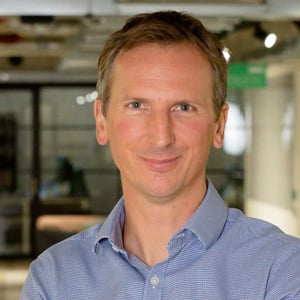Backing Founders from Seed Stage and Beyond
Nine part Q&A with David Mott, Founder Partner, Oxford Capital
1. What is Oxford Capital’s mission?
Oxford Capital was established in 1999 as an alternative investment manager, passionate about investing in early stage technology companies across multiple sectors. Over the years, we’ve invested half a billion pounds into over a hundred companies. Our investors are people who want to generate returns, but are also interested in the impact of technology, and in backing UK enterprises.
Our portfolio is evenly split between deep tech and digital technology companies. These include the sectors one would naturally associate with the deep tech clusters of Oxford and Cambridge, such as artificial intelligence, machine learning, robotics and biotech. In comparison, the other half of our portfolio invests in digital economy businesses across ecommerce, digital health, and sustainability. Often these are companies we’ve been able to access across the UK, but they are also linked to the Arc by alumni of the universities and research institutes. Our portfolio today consists of 21 companies invested at Seed or Series A stages, which we will be looking to back across multiple rounds to Series D and E Stage and ultimately to exit.
2. What is the Oxford Capital Co-Investor Circle?
One service we offer to private investors is the Co-Investor Circle, a group of angel investors who give us the firepower to invest into individual companies in special situations and enable us to bring more capital into our portfolio companies.
These are typically more sophisticated investors, looking for direct investment either through a specialist interest in a certain sector, or through seeking to invest in later stages. To date the members of that group have invested over £60 million into 26 companies across multiple sectors.
3. Which sectors is Oxford Capital investing in, and how does Oxford Capital back founder-entrepreneurs?
We invest in technology sectors in which the UK is considered a world leader. This includes sectors such as fintech, through the presence of the City of London and the huge proportion of our national economy taken up by financial services. The UK also leads in artificial intelligence and machine learning, especially in the Arc, with Oxford and Cambridge representing deep centres of excellence for computer science and machine learning research.
The impact of the NHS in the UK also creates excellence in the fields of digital health and biotech, which are also important sectors for Oxford Capital. The UK has the highest take up of ecommerce of any country in Europe, and so looking at new developments in ecommerce and particularly sustainability is an important sector to track. As a UK-only investor, we naturally try to play to the strengths of the UK, with the Oxford-Cambridge Arc forming an obvious concentration of talent and excellence within the national economy.
For Oxford Capital the importance of the founder-entrepreneur lies at the heart of our investment approach. From our long experience, we believe that if we can support the founder from the earliest stage of building their company, we can maximise value at the point of exit. We focus on backing founders right through the entrepreneurial journey, helping them grow and get the foundations of their business right. We also support their growth as individuals, mentoring and surrounding them with the right board members, independent directors, and giving them training in specialist areas. This allows them to grow and emerge as strong leaders as the business goes through its multiple stages of growth.
We also recognise that starting a business is an incredibly challenging thing to do. It can be a very lonely experience, punctuated by incredible highs and lows – in short, it’s an incredibly tough job. Oxford Capital believes that working closely with founders to support their mental wellbeing is incredibly important. We don’t want them to burn out, but to stay the course, and we really take the long view on that point. When we talk to potential new portfolio companies, we explain how we’ve supported our founders over the years, and often they are attracted to that opportunity for development. This is absolutely at the heart of our investment approach.
4. What makes the Oxford-Cambridge Arc such an attractive place to invest in?
This is a very simple answer: outside of London, the Arc has created more unicorns than any other region. This is not only because of the Arc’s incredibly successful universities, it’s also where the value has been created for investors. Oxford and Cambridge are probably the top destinations for UK and international venture capital looking to invest outside of London. Foreign investors might land in London, and then head to Oxford and Cambridge. The Arc is incredibly important as a magnet for foreign investment.
5. What are the key challenges for start-ups and spinouts in the Arc when securing investment?
They’re the same challenges that all start-ups face: securing capital, finding talent, and potential customers. Housing and transport links may represent small challenges, but in the world of start-ups, particularly digital start-ups, the challenges are the same as everywhere else. We ultimately need more talent, more capital, more entrepreneurs in the Arc, but we also need more start-ups, because that means more successes over the long-term. We need to make the Arc as an environment even more favourable as a place to start a business.
6. What challenges remain?
There is definitely a strong theme that outside of London, investors prefer to invest in other European tech clusters (such as Paris, Berlin or Stockholm), than to invest regionally in the UK. This is a very real challenge. The answer to this is more depth within the cluster and to increase its relative attractiveness. Oxford and Cambridge are perhaps too well-known for being deep tech clusters, and not well-known enough for being digital clusters, they need to do more to position themselves as rivalling leading European tech clusters.
Attracting a mass of people into Oxford and Cambridge has been a challenge and both clusters can be perceived to be quite insular. We need to encourage companies to be presenting and opening themselves up to UK and foreign investment. The UK has more unicorns than France, Germany and Scandinavia put together, and that puts the UK in a really strong position for encouraging investors outside of Europe to head to the UK for investment opportunities first. As a UK-only investor, Oxford Capital harnesses the benefits of this concentration of unicorns within the Arc, not only to achieve returns but to fund cutting-edge research and development in science and technology.
7. How does Oxford Capital benefit from locating itself near the Arc universities?
Oxford is in our name and DNA! The wonderful thing about Oxford is its thousand-year-old brand, which has great global penetration and is very powerful – it’s a truly international brand.
Based in the heart of Oxford means we’re close to entrepreneurs, research, technology and know-how, making it an extraordinary place to do business. What we also find is that Oxford, just the same as Cambridge, acts as an extraordinary magnet for global talent and resources. We have the world’s most successful politicians and businesspeople who want to speak, visit and have an association with the universities of Oxford and Cambridge. Just look at the American billionaire Stephen Schwarzman: he donated £150 million, the biggest donation to a British university since the Renaissance, to be associated with the university and to fund academic research into the ethics of artificial intelligence. All of these factors point to the sheer quality and density of knowledge capital that exists in the cluster.
We spend a lot of time focussing on connecting with our networks, and we are lucky to be near the likes of the Oxford Foundry and other accelerator programmes in Oxford. These help companies with links to the university to access talent and mentoring services, and to accelerate their business. We see these as really positive initiatives – with a number of these programmes running, they help to get entrepreneurs kick started.
A strong venture capital ecosystem also exists, including ourselves, Oxford Science Enterprises, and Cambridge Innovation Capital on the other side of the Arc, that help provide local seed-stage capital alongside local angels to get companies off the ground. Invariably over time they will need to seek more capital, potentially from London or from overseas, and that’s a natural part of the ecosystem. A greater depth of capital within the Arc which could help to develop businesses beyond start-ups would be very positive.
8. Oxford Capital invests in a range of enterprises from AI to life science technology: what do you think the most inspiring enterprise you’ve worked with?
I always hate to choose my favourite child within the portfolio, we have a very diverse range of investments and some really fantastic companies. To pick out some examples, Latent Logic, which grew out of the Department of Computer Science at Oxford, develops AI software for the mobility market to train the algorithms for self-driving cars. This had already had trials with the world’s biggest companies in the self-driving car market, and one of them very quickly acquired the company (Waymo – Google’s self-driving business), providing not only a very good return for our investors but also a very good example of what international investment can do when targeted in the Arc.
Other examples include Xihelm, the company develops robotics to pick tomatoes in greenhouses, transforming the automation of the workforce in agriculture and potentially alleviating labour shortages. Oxford Capital were also seed investors in Moneybox, a digital tech company providing wealth management to everyone, not just to the wealthy. We backed Moneybox when they had no customers, and now they have over 700,000 – providing services to help people save, invest, buy property and manage their pensions. These are all companies doing inspiring things and prove the depth of technology in the cluster and beyond which has the power to attract international attention.
9. What would be your recommendations for the future of the Arc?
Things have really shifted since we set up Oxford Capital. Academics are far more interested in becoming involved in start-ups based on their research, and attitudes have really changed. It’s increasingly acceptable, and desirable, for academics to be associated with spinouts and new companies associated with their research. All of this makes it much easier to talk to academics about businesses, and there’s an increasing understanding around the whole concept of building shareholder value.
My key recommendation would lie in getting more collaboration and more sharing of insights between investors, managers and academics, to gain an understanding of what good really can look like. If we can collaborate on all this together, we can continue to learn and build successful companies in the long term.
Get in touch


